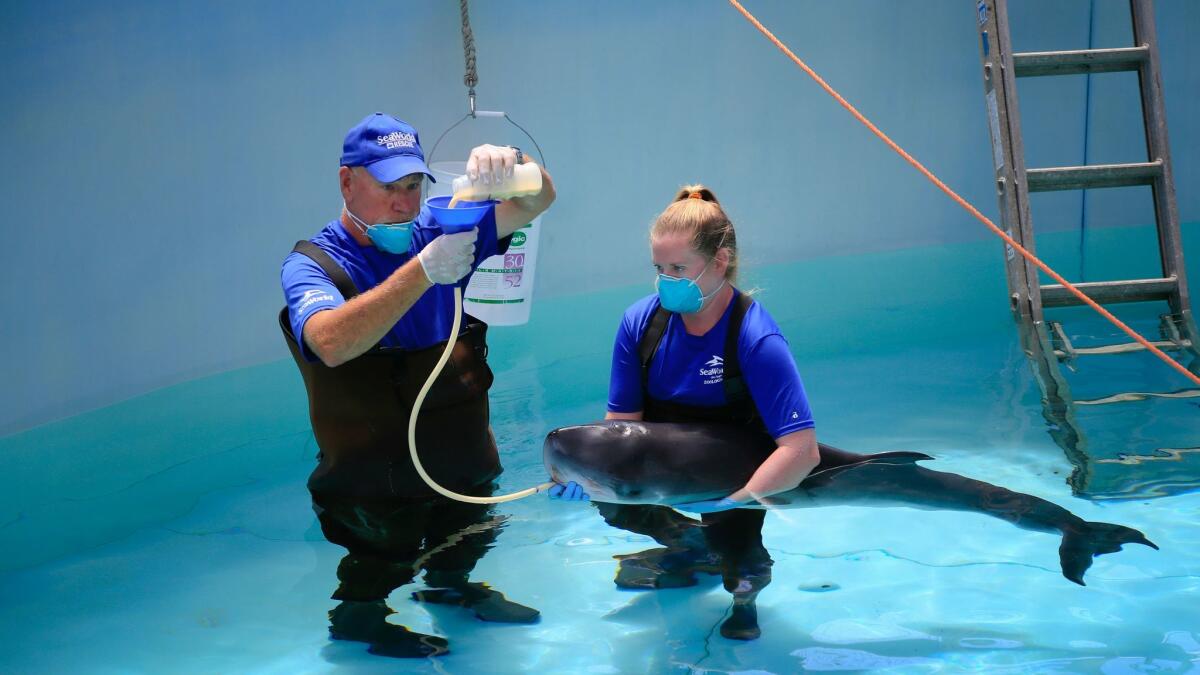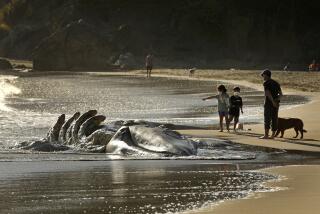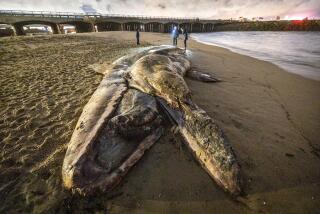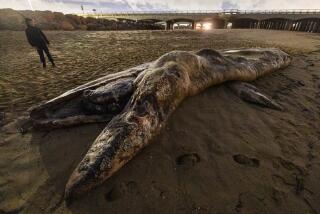Pygmy sperm whale rescued from beach dies

The pygmy sperm whale that captured the attention — and hearts — of the public when it was rescued from La Jolla Shores last month died late Wednesday after surviving nearly a month in captivity, officials from SeaWorld announced Thursday.
The young marine mammal beached itself on the afternoon of July 28. It was found by beachgoers, including a team of Scripps Institution of Oceanography graduate students, who worked to cool the animal with seawater for up to an hour until experts arrived at the scene.
SeaWorld spokesman David Koontz said the whale had been treated inside a rehabilitation pool within the park’s Animal Health and Rescue Center and appeared to be improving until recently.
“The calf had remained in critical and guarded condition since her rescue, but had been showing steady signs of improvement, even gaining 8 pounds, over the last 27 days,” the marine park said in a statement. “While SeaWorld’s rescue team and veterinarians understood that the odds of the calf’s long-term survival were not favorable, they did everything they could for her including providing around-the-clock care over the past month.”
Experts knew last month that the survival rate for beached pygmy whales is historically low, but that did not lessen the blow of losing the animal.
“We’re just heartbroken about the loss of this little calf,” said Jody Westberg, head of SeaWorld San Diego’s stranded animal program.
Pygmy sperm whales are so named because of their similar appearance to the larger mammals. The smaller species grow up to 14 feet in length and are known to be relatively slow swimmers. As a result, much of what is known about pygmy sperm whales is learned from studying beached animals, which is not uncommon.
Marine park experts will conduct a post-mortem examination, or necropsy, to determine the whale’s cause of death and learn more about the species.
jeff.mcdonald@sduniontribune.com
McDonald writes for the San Diego Union-Tribune
ALSO
Emaciated gray whale spotted swimming feet from Seal Beach coastline
The return of a native New Yorker: whales
One of SeaWorld’s oldest killer whales dies
More to Read
Start your day right
Sign up for Essential California for news, features and recommendations from the L.A. Times and beyond in your inbox six days a week.
You may occasionally receive promotional content from the Los Angeles Times.







